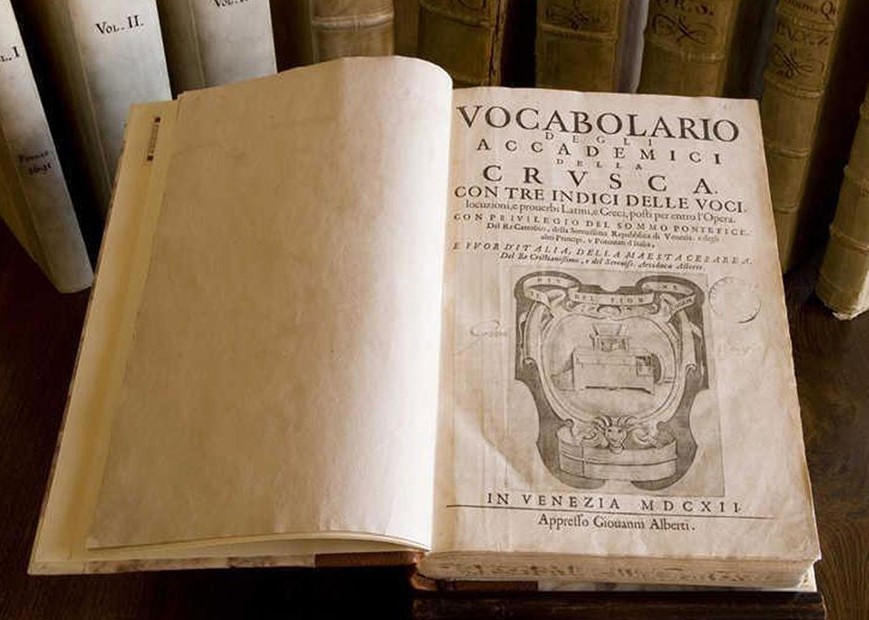
Hello everyone, this month’s column is about new words that have entered the Italian dictionary in the past couple of years. Before we start, just a little premise. When a word is added to the dictionary, it is not and indication of whether the word is right or wrong, or whether that word is Italian (in this case) or not, a word is added to a dictionary when enough people use it, and by enough I mean A LOT.
A dictionary is not a judge that decides what is correct and acceptable and what is not, but simply records what the speakers use and how they use it. And whether we like it or not, when a lot of people use a certain word or expression, recording it in a dictionary becomes very useful. Today I am going to use the Accademia della Crusca as the references! Again, the Accademia della Crusca is not a supreme judge, but simply a recorder of what happens in the Italian language.
The words I am about to describe might seem very familiar to you because they either take inspiration from English or they are taken straight from English, however they might have a very specific meaning in Italian. The first example is rider which is a very common word in English, but it has been used in Italian to indicate the people who deliver food in the cities through some food delivery apps, but the peculiarity is that they usually get around by bike, and that’s where you get “rider” from.
Another simple word that is used, especially by young people, is friendzonare which, as you probably can guess means “to friendzone.” As you know, Italian verbs usually end in -are, -ere, or -ire, but when taking inspiration from other languages we usually go with -are, therefore friendzonare. Anna ha friendzonato Matteo. −Anna friend zoned Matteo. Another verb that works just the same is blastare, which is often used on social media. It does come from to blast but is specifically used with the meaning of hushing or mocking someone that usually has a strong opinion by presenting a public logical explanation that proves what they said wrong. It was used first to refer to the answers that a popular Italian journalist, Enrico Mentana, was giving to people ranting on Facebook. Spoilerare is another example. Spoilerare comes from spoiler, and it means to reveal the ending or a very important detail of a book, Tv show, movie, ecc. Sono arrabbiata con Giulio, mi ha spoilerato la nuova puntata! I’m upset with Giulio, he spoiled the new episode for me! However, watch out, because spoiler is the revealed detail or ending itself. So it is common to hear: Che spoiler! Meaning “what a reveal!” or senza volerlo ho letto uno spoiler del film – Unintentionally, I read a spoiler for the movie.
And then, straight from the Internet and its countless memes, cringe! Which means exactly “cringe.” However, in Italian is mostly used to describe that a situation or a person è (is) cringe: Madonna, hai visto come si è comportato? Che cringe! (Did you see how he behave! That was so cringy!)
You might think that the fact that the listed words come from English might make it easier for you to learn them or use them, but honestly, they are used with such a specific meaning and in such specific situations that knowing their English meaning and use might not help you at all! Especially because their pronunciation is often Italianized to help the speaker say them more fluently. And don’t get upset if it does not seem pure Italian or pure English, because even if we like to think that such things exist, they don’t at all, they are always evolving and always getting contaminated by other languages, they way people speak and the current society and what the needs in that moment are. But I think is fun to see what we loan from English and what it becomes and how people use it. It’s fun!



